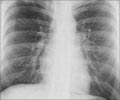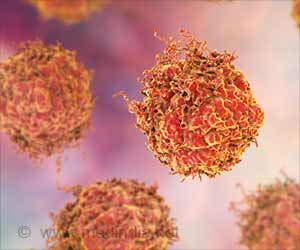
‘Because cancer drugs medications are widely used in cancer patients, the researchers expect that clinical trials can be launched quickly to test whether they can combat tuberculosis infection.’
Tweet it Now
Some types of cancer drugs target these immunosuppressive proteins. Tuberculosis affects millions of people around the world, and it is difficult to cure even with extended antibiotic therapy.
"Tuberculosis is a massive global health burden," said Erin McCaffrey, lead author and graduate student at the varsity.
"Most of the time, the immune system is unsuccessful in eradicating the bacteria, but it's not known why. We wondered whether the same molecular pathways that protect cancer cells from the immune system could also be affecting the immune response to the tuberculosis bacteria," McCaffrey said.
The researchers used an imaging technique called multiplexed ion beam imaging by time of flight (MIBI-TOF).
Advertisement
"We saw some of the brightest signals we'd ever seen, even in comparison with cancer tumours," said Mike Angelo, assistant professor of pathology at Stanford University Medical Center.
Advertisement
In particular, the researchers saw high levels of two proteins - PD-L1 and IDO1 - that can suppress the immune response to cancer and are often found in tumour tissue. These proteins are targeted by approved cancer drugs.
When McCaffrey and Angelo studied blood samples collected from more than 1,500 people infected with TB, they found that the levels of PD-L1 correlated with clinical symptoms.
Patients with latent, or asymptomatic, infection had lower levels of PD-L1 in their blood and were less likely to progress to active infection than those with higher PD-L1 levels.
Conversely, patients with active infection who were considered cured after treatment experienced significant decreases in their blood PD-L1 levels compared with those who were not cured.
"We saw really consistent upregulation of these signals in the blood, which is emblematic of the failed immune reaction," Angelo said. "They could also be used to predict disease progression from latent to active disease."
Source-IANS















